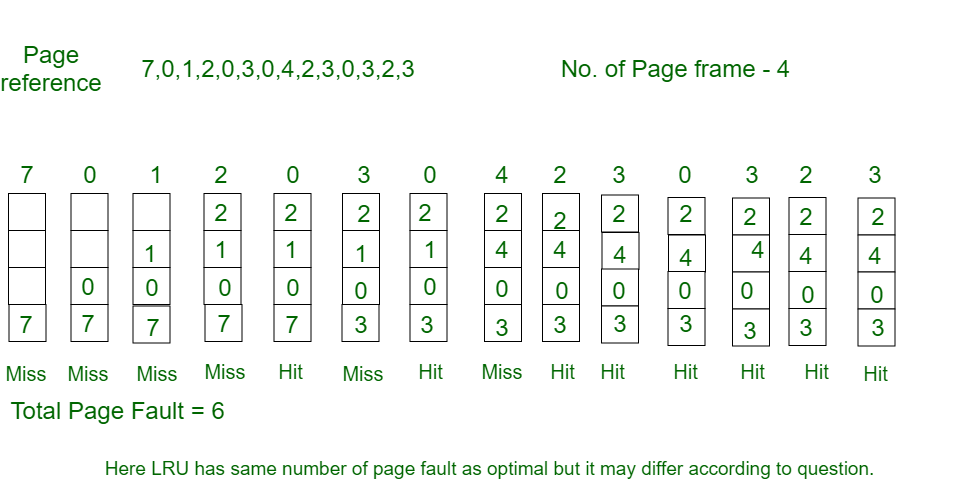
Strng_size = Integer.parseInt(br. Entering the string size of the reference By utilizing optimal page-replacement algorithm ensure the most minimal conceivable page fault rate for a fixed number of frames. (" Enter the total number of Frames: ") įrames = Integer.parseInt(br.readLine()) According to Optimal Page Replacement algorithm, it is always optimal to replace the page which is going to be used least in the future. Int frames, pointer = 0, hit = 0, fault = 0,strng_size This algorithm says that if we know which page we are gonna use in future then we can optimize the page replacement technique. Public static void main(pagestring args) throws IOExceptionĬountbuffer bfr = new Countbuffer(new InputStreamReader(System.in)) creation of the main class to implement Optimal page replacement algorithm Replace page that will not be used for longest period of time. importing packages to use classes in the page replacement program Operating System Concepts with Java 8th Edition.

User Level thread Vs Kernel Level thread.Bounded Buffer Problem / Producer Consumer Problem.This is so because LRU is a stack algorithm. of page fault may decrease or remain same if no of frame is increased. Belady's anomaly states that increasing number of frames will never increase number of page faults if LRU page replacement algorithm is used. This phenomenon is an example of Belady's anomaly. That means no of page faults has decreased with the increase in frame number.

The outputs show that the no of page fault for 4 frames are 17 while the no of page fault for 5 frames are 16.


Set page_fault=0 & frame_size to the value given as input.Write a program to simulate Least Recently Used (LRU) page replacement algorithm for the following page reference string: 9, 10, 11, 7, 12, 8, 7, 6, 12, 5, 4, 3, 10, 11, 12, 4, 5, 6, 9, 4, 5.Ĭonsider (i) 4 frames and (ii) 5 frames. Submitted by Radib Kar, on November 21, 2018 In this article, we are going to see how no of page faults changes with increase in frame size in LRU replacement policy?


 0 kommentar(er)
0 kommentar(er)
